-
 Korea.net's 24-hour YouTube channel
Korea.net's 24-hour YouTube channel- NEWS FOCUS
- ABOUT KOREA
- EVENTS
- RESOURCES
- GOVERNMENT
- ABOUT US
As drought, floods and other such natural disasters frequently occur worldwide, the importance of global issues such as climate change, food supplies, agriculture and the environment, has been growing.
Taking the worsening phenomena seriously, about 1,200 government representatives and experts from 65 countries gathered in Gwangju, Korea, on September 14 to discuss such global issues, mainly concerning water and food supplies.
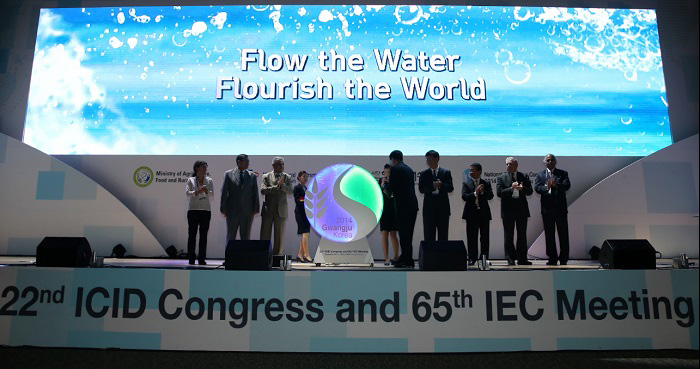
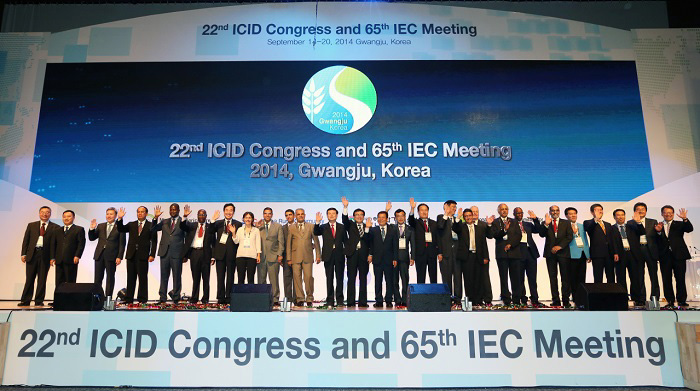
Under the theme of “Dealing with Climate Change and Securing Water for Food,” the 22nd International Congress on Irrigation and Drainage (ICID) had policies concerning irrigation, drainage and water management at the top of its agenda, as such policies are crucial in securing water for agricultural use and in coping with food scarcity issues.
The ICID congress is often dubbed as “the U.N. conference on agricultural water,” as it is a place where countries from all around the world can be brought together to discuss and handle global issues concerning water resources and rural development, which require global cooperation.
The one-week congress began with a round table discussion session for representatives from developing countries, where Korea, a country that grew from being a beneficiary of aid to being a giver of aid, shared its experience in infrastructure construction and development across its rural areas.
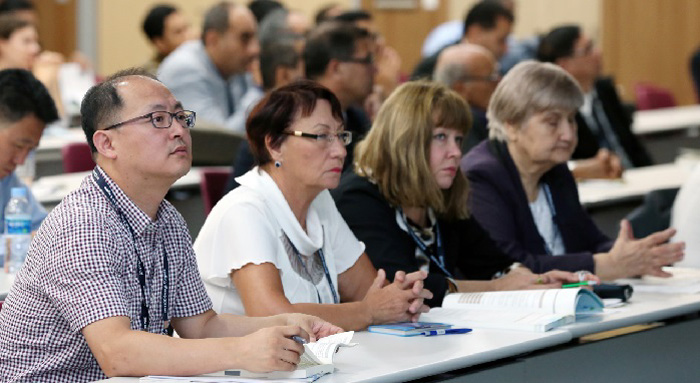
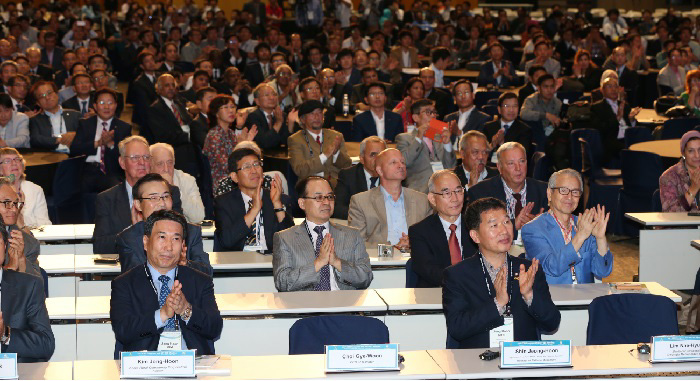
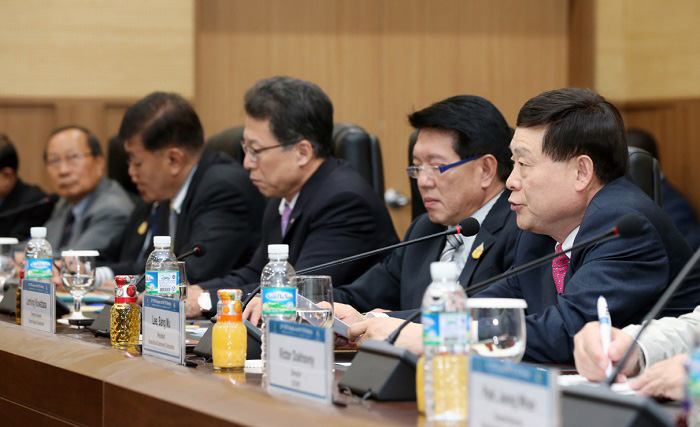
A series of discussions on how to enhance cooperation in the agricultural sector and how to bring agricultural technology to as many parts of the world as possible were held, too.
Following the round table discussion session was a minister-level special session where the participants agreed that cooperation on and investment in the global community should be made both privately and publicly in order to secure stable agricultural development and supplies of food.
On September 19, the restoration project of the Yeongsangang River, a river running southwest from Damyang, Jeollanam-do (South Jeolla Province), and into the Yellow Sea, and its effects on the nearby rural region were discussed. Participants also toured sections of the river in person.
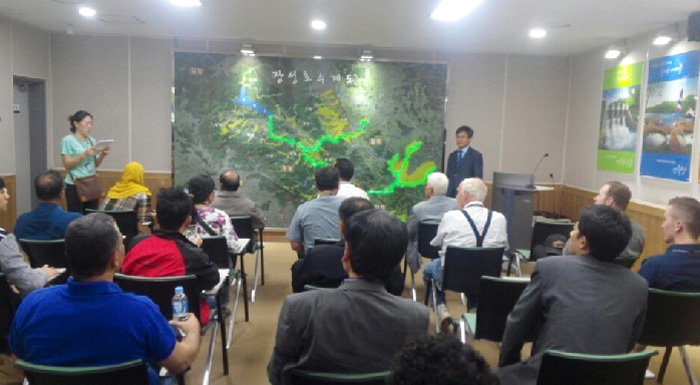
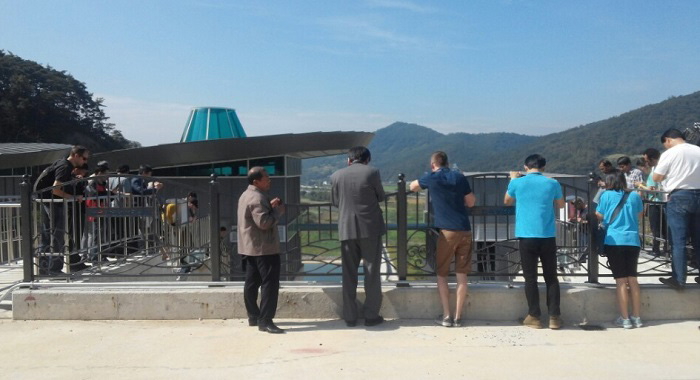
The river development project kicked off in 1972 and continued for 41 years. As a result, agricultural productivity across the nearby rural area has increased by 25 percent and, in addition, the amount of land across the region has been expanded.
The Yeongsangang project was also introduced in a white paper as it has been recognized for its contributions to developing both tourism and local festivals, as well as boosting the agricultural development of the region.
The congress served to bring together global leaders to share their ideas on irrigation and drainage, as well as to find ways to secure water resources. It came to an end with the adoption of a joint statement on September 20.
By Lee Jeong-rok, Sohn JiAe
Korea.net Staff Writers
jeongrok@korea.kr
Taking the worsening phenomena seriously, about 1,200 government representatives and experts from 65 countries gathered in Gwangju, Korea, on September 14 to discuss such global issues, mainly concerning water and food supplies.


The opening session of the 22nd International Congress on Irrigation and Drainage kicks off in Gwangju on September 14. (photos courtesy of the secretariat of the 2014 ICID Congress)
Under the theme of “Dealing with Climate Change and Securing Water for Food,” the 22nd International Congress on Irrigation and Drainage (ICID) had policies concerning irrigation, drainage and water management at the top of its agenda, as such policies are crucial in securing water for agricultural use and in coping with food scarcity issues.
The ICID congress is often dubbed as “the U.N. conference on agricultural water,” as it is a place where countries from all around the world can be brought together to discuss and handle global issues concerning water resources and rural development, which require global cooperation.
The one-week congress began with a round table discussion session for representatives from developing countries, where Korea, a country that grew from being a beneficiary of aid to being a giver of aid, shared its experience in infrastructure construction and development across its rural areas.



Representatives from 65 countries share their ideas about climate change and how to secure water for agricultural use during the 2014 ICID Congress held in Gwangju on September 14. (photos courtesy of the secretariat of the 2014 ICID Congress)
A series of discussions on how to enhance cooperation in the agricultural sector and how to bring agricultural technology to as many parts of the world as possible were held, too.
Following the round table discussion session was a minister-level special session where the participants agreed that cooperation on and investment in the global community should be made both privately and publicly in order to secure stable agricultural development and supplies of food.
On September 19, the restoration project of the Yeongsangang River, a river running southwest from Damyang, Jeollanam-do (South Jeolla Province), and into the Yellow Sea, and its effects on the nearby rural region were discussed. Participants also toured sections of the river in person.


A group of participants in the 2014 ICID Congress visit the restoration site of the Yeongsangang River in Jeollanam-do on September 19. (photos courtesy of the secretariat of the 2014 ICID Congress)
The river development project kicked off in 1972 and continued for 41 years. As a result, agricultural productivity across the nearby rural area has increased by 25 percent and, in addition, the amount of land across the region has been expanded.
The Yeongsangang project was also introduced in a white paper as it has been recognized for its contributions to developing both tourism and local festivals, as well as boosting the agricultural development of the region.
The congress served to bring together global leaders to share their ideas on irrigation and drainage, as well as to find ways to secure water resources. It came to an end with the adoption of a joint statement on September 20.
By Lee Jeong-rok, Sohn JiAe
Korea.net Staff Writers
jeongrok@korea.kr
Most popular
- First hearing-impaired K-pop act hopes for 'barrier-free world'
- Event 'K-Beauty Hang Out' draws hundreds in Philippines
- 'Mad Max' director impressed by 'cinema-literate' Korean viewers
- Ceremony in Seoul inducts 2,641 content creators of Korean culture
- Romanian presidential couple visits national cemetery













